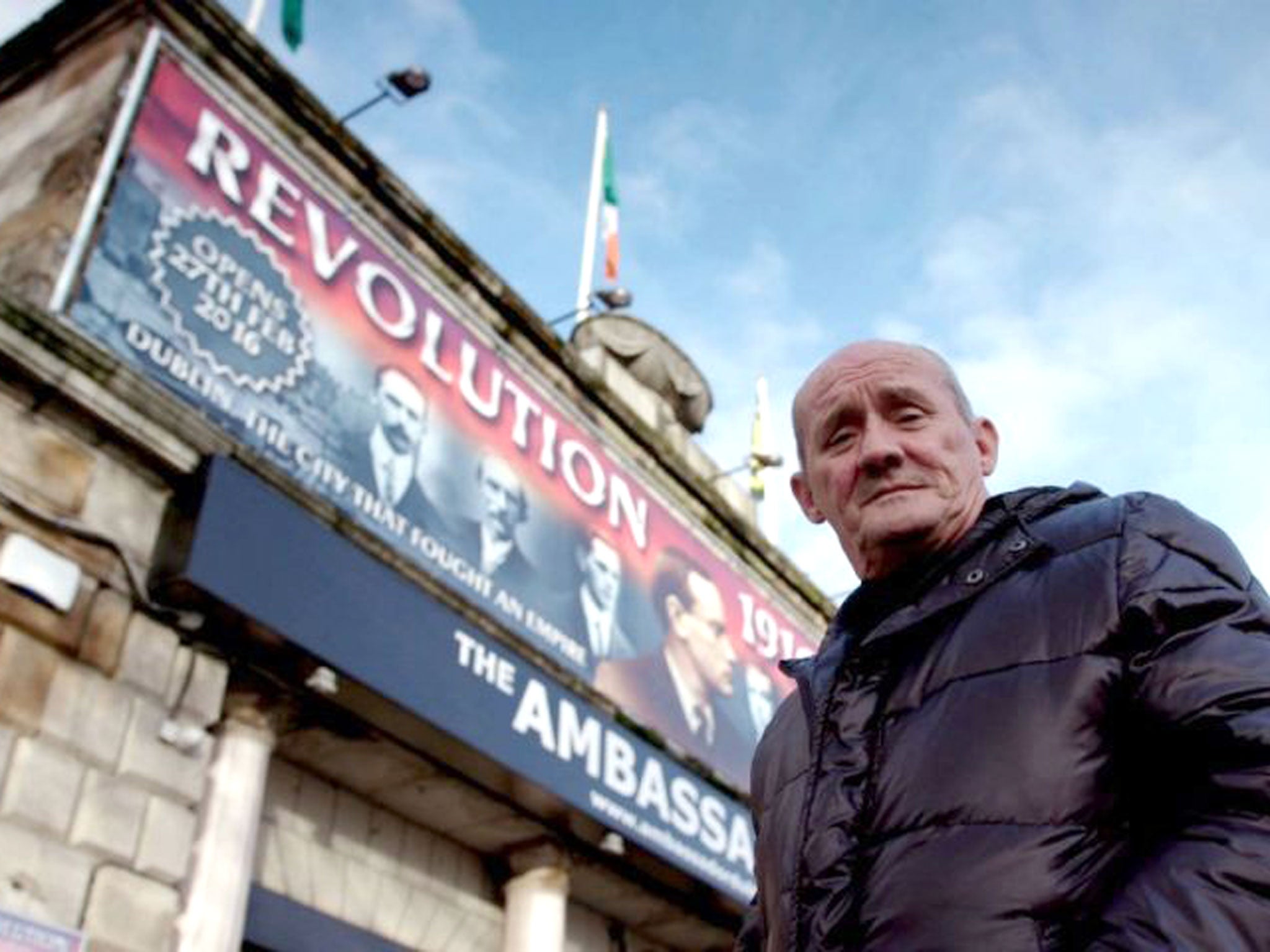Brendan O'Carroll: My Family At War, TV review - Mrs Brown's Easter Rising history lesson was free of Brit bashing
Brendan O'Carroll proved a solid narrator with an eye for a good line in the BBC programme

Your support helps us to tell the story
From reproductive rights to climate change to Big Tech, The Independent is on the ground when the story is developing. Whether it's investigating the financials of Elon Musk's pro-Trump PAC or producing our latest documentary, 'The A Word', which shines a light on the American women fighting for reproductive rights, we know how important it is to parse out the facts from the messaging.
At such a critical moment in US history, we need reporters on the ground. Your donation allows us to keep sending journalists to speak to both sides of the story.
The Independent is trusted by Americans across the entire political spectrum. And unlike many other quality news outlets, we choose not to lock Americans out of our reporting and analysis with paywalls. We believe quality journalism should be available to everyone, paid for by those who can afford it.
Your support makes all the difference.The centenary of the Easter Rising next week will no doubt be marked by many articles, columns and programmes but few will be more heartfelt than Brendan O'Carroll's retelling of his family history.
O'Carroll is best known as the bawdy, brash creator of that slapstick-ridden hymn to sitcoms gone-by, Mrs Brown's Boys, but away from the drag and broad jokes he proved a solid narrator with an eye for a good line and a nice way with a haunting image. There was plenty of standard Oirishness too, smoky pubs stuffed full of fiddle players and "The Foggy Dew" playing us in at the start, but O'Carroll had an interesting story to tell and, while clearly partisan, he did so with clarity and an admirable even-handedness.
Three of his uncles fought in the uprising, one of them barely out of his teens, and the story was at its best when O'Carroll allowed his discomfort with that situation to shine through. "I just can't imagine standing at the door to wave them off to fight," he remarked at one point, adding that he would never have let his own sons stride out to possible death that sunny morning. He was sympathetic too to the naive young British soldiers who had believed they would be sent to Germany to fight in the First World War and instead found themselves dying on Dublin's Mount Street bridge.
Most of all though this was a fascinating look at just how much went wrong on both sides. The rebels were riven with internal conflict, with Eoin MacNeill, the chief of staff of the Irish Volunteer Force, vehemently opposed to an armed rebellion he was thought was doomed to failure and Pádraig Pearse equally determined that revolt should go ahead. On the fateful Easter Sunday, MacNeill placed an advert in the Sunday Independent telling volunteers not to parade. Only a third turned up to fight – O'Carroll's uncles among them. Their bravery brought little reward. Instead crowds lined the Dublin streets to jeer at them as the rising stuttered and collapsed.
Things were no better on the other side where the heavy-handed British response, which included executions and internments, helped swing popular support behind the idea of a free Ireland. Standing in a field in Wales near where the surviving Irish political prisoners, his uncles among them, had been imprisoned, O'Carroll concluded his tale with a clear-eyed assessment of how the British themselves helped first radicalise and then create a nation. "When will they ever learn?" he remarked. The depressing answer is probably not any time soon.
From the immortality conferred by martyrdom to dreams of life everlasting as Horizon followed Russian internet millionaire Dmitry Itskov on his quest to literally live forever. Like most insanely wealthy people Itskov had a lot of time and money to spend on attempting to achieve his heart's desire. He funded conferences, talked to scientists, discussed whether it might be eventually possible to transform people's "personalities into machines".
It made for fascinating viewing in the way watching an obsession in full flight always does, but it was hard to understand just why Itskov was so determined to stay alive. "If there's no immortality technology I'll be dead within 35 years," he said, the horror at this dreadful fate clearly etched on his face. Well, yes, but isn't that what makes us truly human? The recognition that death, that great leveller, eventually comes for us all.
Join our commenting forum
Join thought-provoking conversations, follow other Independent readers and see their replies
Comments